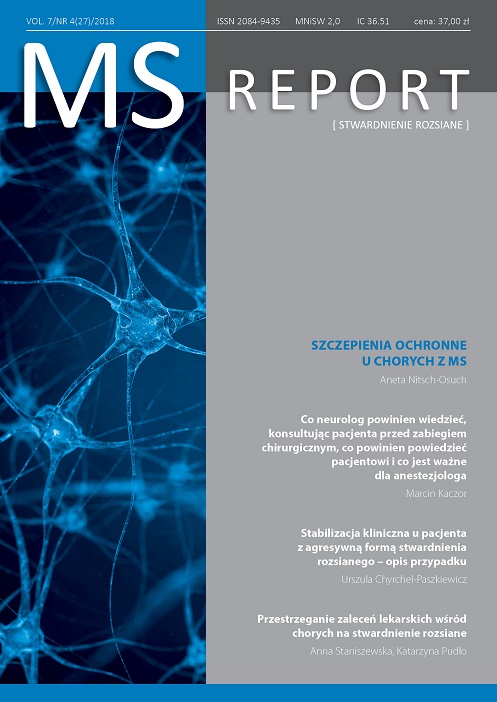Clinical stabilisation in patient with rapidly evolving severe multiple sclerosis – case report Case report
Main Article Content
Abstract
Multiple sclerosis is chronic, demyelinating disease of central nervous system for which 2.500 million people are affected in the world. Main treatment goal for treatment of multiple sclerosis is to inhibit disease activity described as achieving NEDA – no evidence of disease activity. In recent years many clinical trials were conducted with new molecules and a few medications were registered for the treatment of remitting-relapsing multiple sclerosis.
Ocrelizumab is a humanized monoclonal antibody that selectively depletes CD20+ B cells. Ocrelizumab is associated with lower rates of disease activity and progression than interferon β-1a over a period of 96 weeks. In this article the case of patient with rapidly evolving MS with clinical stabilisation after treatment with ocrelizumab is presented.
Article Details
Copyright © by Medical Education. All rights reserved.
References
2. Rush C.A., MacLean H.J., Freedman M.S.: Aggressive multiple sclerosis: proposed definition and treatment algorithm. Nat. Rev. Neurol. 2015; 11: 379-389.
3. Stüve O., Centonze D.: Treatment decisions for patients with active multiple sclerosis. JAMA Neurol. 2015; 72: 387-389.
4. Giovannoni G., Tomic D., Bright J.R., Havrdová E.: No evident disease activity: The use of combined assessments in the management of patients with multiple sclerosis. Mult. Scler. 2017; 23(9): 1179-1187.
5. Lu G., Beadnall H.N., Barton J. et al.: The evolution of “No Evidence of Disease Activity” in multiple sclerosis. Mult. Scler. Relat. Disord. 2018; 20: 231-238.
6. Giovannoni G., Bermel R., Phillips T. et al.: A brief history of NEDA. Mult. Scler. Relat. Disord. 2018; 20: 228-230.
7. Hauser S.L., Bar-Or A., Comi G. et al.; for the OPERA I and OPERA II Clinical Investigators: Ocrelizumab versus Interferon Beta-1ain Relapsing Multiple Sclerosis. N. Engl. J. Med. 2017; 376(3): 221-234. DOI: 10.1056/NEJMoa1601277.

